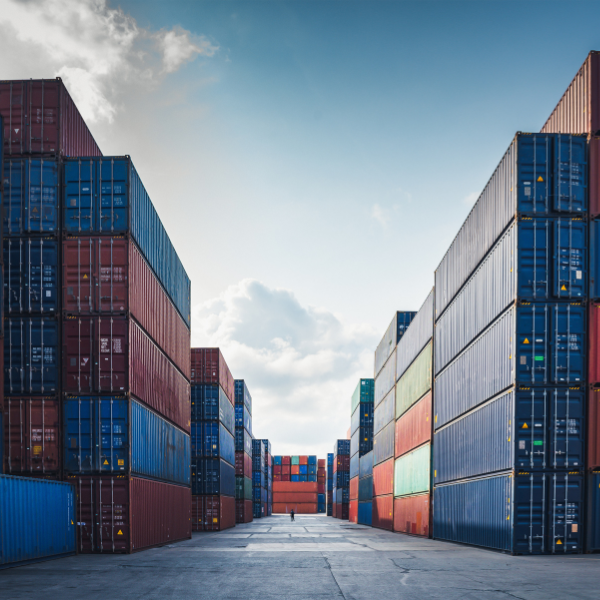Your Guide to CDS Customs Procedure Codes (CPCs)
For individuals running import and export businesses, it can sometimes seem that there are an awful lot of codes to keep track of when submitting your customs declarations. From tariff codes, to codes for categorisation, it can be easy to get mixed up!
In our handy guide for traders, we’ll summarise what is meant by customs procedure codes (CPCs), when they should be used, and how using the correct ones can help save you, or your clients, money on import and export duties.
Read on to find out more.
What are Customs Procedure Codes (CPCs)?
Customs procedure codes (CPCs) are 7-digit numerical sequences, which accompany imported and exported goods, and determine what customs procedures the shipment will be subject to, or exempt from.
These codes are used by the local Customs Authorities when processing shipments, so that the correct procedures are followed based on the contents of the shipment, as well as other factors such as total value. For instance, controlled substances like fuel or chemicals may be subject to different customs procedures than a shipment of garments.
The system of CPCs ensures that shipments are dealt with correctly, safely, and in compliance with customs and excise law.
What customs procedures might shipments be subject to?
Once a shipment has been processed by the relevant customs agencies, the typical procedure is that the shipment will be released for free circulation. For goods that have been imported for sale, this means that following the relevant checks, the shipment will be released to the recipient, and can be distributed and legally sold within the country of arrival.
However, there are other procedures that shipments may be subject to, if the intention is not to immediately distribute the items, or if there are further checks that need to be completed. Some of these procedures include:
- Temporary dispatch or export, for return in an unaltered state (e.g. for international storage purposes)
- Warehousing with the intention to export (e.g. storage in the country of origin)
- Inward processing procedures (suspension system — where processing of a shipment may be delayed for a time)
What are special procedures in customs?

Customs special procedures are duty regimes which can be applied to shipments if certain conditions are met, meaning they will be treated slightly differently than a standard shipment of a similar type.
Special customs procedures can offer importers and exporters the ability to store their shipments, either to prepare for shipment at a later date, or even to carry out repairs if needed. Customs special procedures can also allow the suspension or complete relief of import duty tax, which can be very helpful to business owners if they meet the criteria.
Here are some examples of customs special procedures, and the type of goods and situations they can be applied to:
Temporary Admission
In some circumstances, goods may only need to be imported into a country on a temporary basis, whether for exhibition, repairs, additional manufacturing tweaks, or simply just for storage on the way to the shipment’s final destination. Temporary admission procedures can offer either partial or full relief from import duty, as the shipment is not intended to remain in the country.
Inward Processing
Inward processing (IP) is a customs procedure often used by businesses who manufacture their products with parts from all over the world. If your shipment of goods has only entered a country to be repaired, have parts added, or for further manufacturing, you may be able to claim import tax suspension, reduction, or relief, as your goods won’t be distributed within that country. This can save businesses a significant amount, and also enables them to use parts and manufacturing services from a wider range of countries.
Outward Processing
Similar to inward processions (IP), outward processing (OP) applies to shipments which are exported for the purposes of repair or manufacture. This means that rather than import tax relief, you will be eligible for the suspension, reduction, or relief of export tax.
Customs Warehousing
If your shipment will be held for some time in a customs warehousing facility, it is likely that you won’t need to pay certain fees or duties until the shipment is released from the warehouse. This can be particularly useful to businesses that require stock to be stored for long periods of time, or utilise international distribution centres in their operations.
Returned Goods Relief
Returned goods relief is available to individuals or businesses that are re-importing goods that have previously been exported to other countries. Certain exclusions may apply, based on the territory, but if you are re-importing goods that you have previously sent, you may be entitled to import duty relief.
End Use Relief
Importers may be entitled to import duty relief based on the contents of their shipments — for instance, if the contents are to be used in aerospace, certain types of manufacture, or for national defence. Whilst end use relief applies to only a very strict number of goods, it is certainly worth checking to see whether your shipments fit the criteria.
For the full list of customs special procedures, you can visit the UK’s .GOV site, or Ireland’s Revenue page and find information on how you can apply.
CPCs for Import and Export
As an importer or exporter, you will include CPCs as part of your customs declaration documents, to ensure that your shipment is processed correctly, and the correct fees and duty is applied. This will also ensure that any suspension, reduction, or relief of customs duty that you’re entitled to will be applied, helping to save you money.
To identify the correct CPC code to include in your customs declaration, you can build your own 7-digit code using the process outlined by HMRC in their guidance for traders in the UK, or visit the Irish Revenue’s page for guidance for Irish traders.
Our Customs Software Solutions
At Thyme-It, we have worked alongside importers and exporters for over 20 years, using our purpose-built software solutions to help make the customs and excise process as quick and easy as possible. Rather than wasting time and resources on manually generating your own customs declarations, you can use our user-friendly applications to create, submit, and track your import and export declarations.
With ready-to-fill templates, you can add customs procedure codes to your declarations with ease, and take advantage of our wide range of tech-based solutions. From UK Import and Export declarations, to Import Control System (ICS) submissions and beyond, find out how Thyme-IT can support your business and help you take your operations to the next level. Contact us now, and a member of our team will be in touch shortly to discuss the needs of your business.




